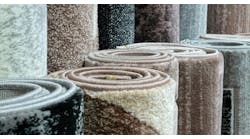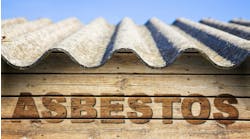Consortium Agrees On Initial Funding For Waste-To-Chemistry Facility In Rotterdam
A consortium of companies comprising Air Liquide, AkzoNobel Specialty Chemicals, Enerkem and the Port of Rotterdam signs a project development agreement covering initial investments in an advanced waste-to-chemistry facility in Rotterdam, Netherlands. The facility will provide a sustainable alternative solution for non-recyclable wastes, converting waste plastics and other mixed wastes into new raw materials.
The initial investments, which cover detailed engineering, the setup up of a dedicated joint venture and completing the permitting process, are reportedly worth €9 million. The consortium aims to take the final investment decision (FID) for the estimated €200 million project later in 2018 and appoints Dutch Rabobank as the lead advisor for the financing process.
Realization of the project is supported by the Dutch Ministry of Economic Affairs & Climate Policy, which has agreed to develop mechanisms and regulation that will help bring the technology to full scale to support the low-carbon transition of the Dutch economy. The waste-to-chemistry project is also supported by the City of Rotterdam, the Province of Zuid-Holland and InnovationQuarter, the regional development agency, according to AkzoNobel. The facility will reportedly convert up to 360,000 tons of waste into 220,000 tons (270 million litres) of “green” methanol.
"This is an important milestone for the project and a significant step toward implementing a sustainable and circular chemical industry," says Marco Waas, director RD&I at AkzoNobel Specialty Chemicals, who leads the consortium's steering committee. "The agreement comes at a very appropriate time given the current challenges in plastics recycling in Europe. We can convert non-recyclable waste into methanol, an essential raw material for many everyday products, including sustainable transportation fuel. Not only can this be used in the existing supply chains and replace fossil sources, but it also avoids CO2 emissions otherwise produced by burning waste."
The facility will be built within the Botlek area of the Port of Rotterdam using Enerkem's proprietary technology, and will convert non-recyclable mixed waste, including plastics, into syngas and then into clean methanol for use in the chemical industry and for the transportation sector. Today, methanol is generally produced from natural gas or coal. The plant will have two production lines, or twice the input capacity of Enerkem's commercial-scale plant in Edmonton, Canada. It will reportedly benefit from the infrastructure available within the Port of Rotterdam, as well as synergies with Air Liquide for supplying the required oxygen and together with AkzoNobel, the raw material hydrogen. AkzoNobel also acts as a customer for the methanol.
For more information, visit: www.akzonobel.com
--

